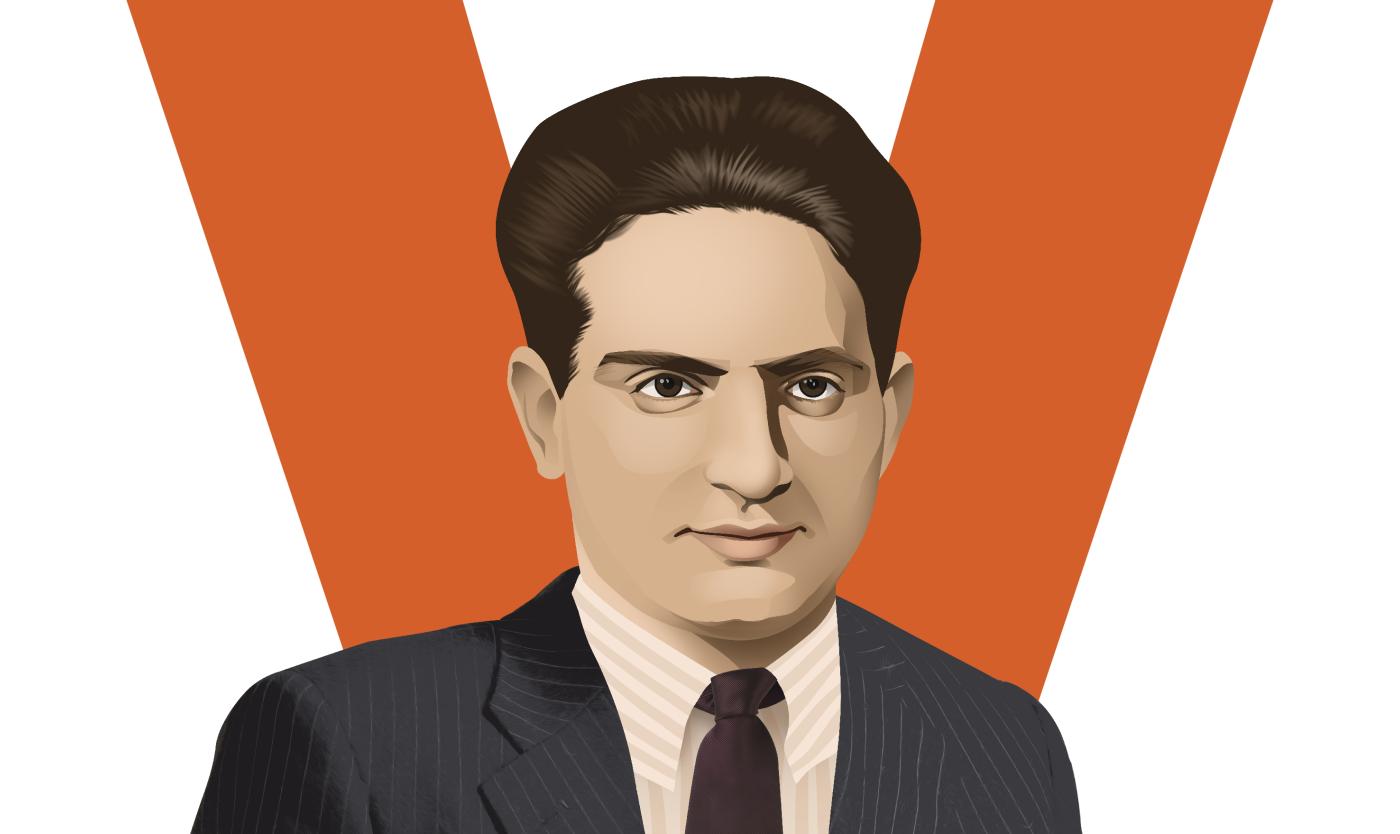
Leopold Flam
1912-1995
Leopold Flam was a Jewish resistance fighter involved in underground publishing and the Patriotic Militias, later deported to Buchenwald where he performed forced labour. After the war, he became a leading philosopher whose work was deeply shaped by his wartime experiences.
Leopold Flam (1912–1995) was a Belgian historian and philosopher who was active in the resistance during the Second World War. As a member of the Jewish Defence Committee (JVC) in Antwerp, he played a key role in distributing the underground magazine De Vrije Gedachte, writing under the pseudonym “Flamme.”
In May 1943, Flam was arrested as a Jew and transferred to the Dossin Barracks in Mechelen. After being released in October of that year, he was arrested again in March 1944—this time for his resistance activities. He was apprehended on Lamorinière Street in Antwerp, along with four others, and was brutally interrogated by the SIPO-SD (Sicherheitspolizei – Sicherheitsdienst), then imprisoned in the Begijnenstraat prison. He was later deported to Buchenwald concentration camp and the nearby Hadmersleben labour camp, where he endured forced labour and witnessed the horrors of the Nazi regime. Flam kept a diary during this period, which was not preserved, but later served as the foundation for his (posthumously published) text Naar de dageraad (Towards the Dawn).
In May 1945, he was liberated by the Red Army and returned to Belgium. His recognition file as an “armed resistance fighter” in the National Archives attests to his involvement with the Patriotic Militias (PM), established within the Independence Front in support of the Allied liberation. The Jewish Defence Committee eventually merged into the PM. After the war, Flam was awarded recognition as an armed resistor, as well as for his work in the underground press and his civil resistance.
After the war, Flam resumed his academic career. In 1952, he earned a doctorate in history from Ghent University, and in 1961 became a professor of philosophy at the Université libre de Bruxelles (ULB), and later at the Vrije Universiteit Brussel (VUB). He co-founded several philosophical associations and journals, including the Centre for the Study of the Enlightenment and the Flemish Society for Philosophy (1959). His work focused on themes such as ethical socialism, existentialism, and the Enlightenment, and he published numerous books and articles. Recurring topics in his writings—freedom, responsibility, humanity, and the absurdity of evil—echo his wartime experiences.
Sources:
- Elias, Willem, et al., Ecce Philosophus. Leven en werk van Leopold Flam. VUBPress, 2021, p.42-63.
- Flam, Leopold, Ik zal alles verdagen, ook mezelf, samengesteld door Kristien Hemmerechts en Guido Van Wambeke, De Geus, 2023, p. 266 e.v.
- Antwerpen Herdenkt. Interview met Kristien Hemmerechts en Guido Van Wambeke n.a.v. de publicatie “Vanuit de duisternis koos Leopold Flam de weg naar het licht van de rede.” Antwerpen Herdenkt, www.antwerpenherdenkt.be/oorlogsgetuigen/vanuit-de-duisternis-koos-leopold-flam-de-weg-naar-het-licht-van-de-rede.
- Algemeen Rijksarchief, Erkenningsdossier ‘gewapende weerstander’, reeks 510-F1944, doos 1032.
- Algemeen Rijksarchief, Dienst Oorlogsslachtoffers, dossier statuut PC (presse clandestine) 15186, dossier statuut RC (résistant civil) 32052, RA
- Flam, Leopold. Naar de dageraad: Nagelaten fragmenten. VUB Press, 1996.
- CEGESOMA. “Het Archief van het Onafhankelijkheidsfront.” CEGESOMA - Studie- en Documentatiecentrum Oorlog en Maatschappij, https://www.cegesoma.be/